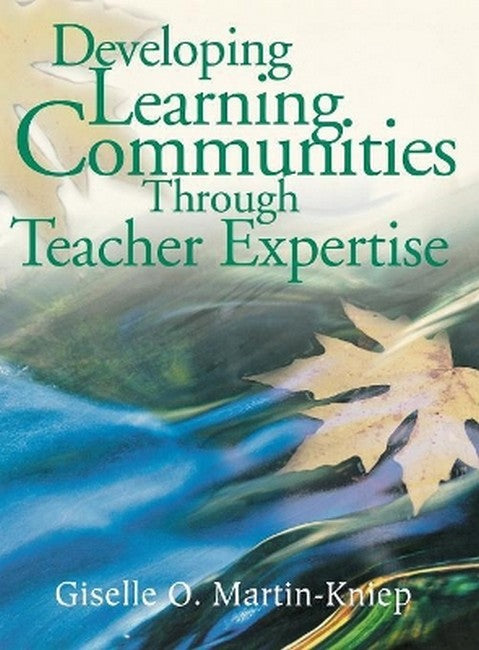Giselle Martin-Kniep is a teacher educator, researcher, program evaluator, and writer. She is the President of Learner-Centered Initiatives, Ltd., an educational consulting organization specializing in comprehensive regional and school-based curriculum and assessment work. She is also the CEO of the Center for the Study of Expertise in Teaching and Learning, an organization committed to the discovery and dissemination of teacher expertise. Dr. Martin-Kniep has a strong background in organizational change and has graduate degrees in communication and development, social sciences in education, and educational evaluation from Stanford University. She has taught at Adelphi University, the University of British Columbia, and the University of Victoria. In the last fourteen years, she has worked with hundreds of schools and districts nationally and internationally in the areas of alternative assessment, standards-based design, school change, and action research. Dr. Martin-Kniep has written extensively. Her most recent books are Why Am I Doing This: Purposeful Teaching with Portfolio Assessment, published by Heinemann; Capturing the Wisdom of Practice: Portfolios for Teachers and Administrators; and Becoming a Better Teacher: Eight Innovations that Work both published by ASCD.
Request Academic Copy
Please copy the ISBN for submitting review copy form
Description
Preface Acknowledgments About the Author 1. Learning Communities What Are Learning Communities? Why Are They Important? What Do Learning Communities Do? What do They Require to Function? What Gets in the Way of the Development of Learning Communities? What Can We Do to Support Learning Communities? Possible Questions for the Reader Recommended Books on Learning Communities 2. Standards-Based Curriculum and Assessment Design What Does It Take to Develop a Standards-Based, Learner-Centered Unit? How Do We Help Teachers Develop High-Quality Standards-Based Units? Possible Questions for the Reader Recommended Books on Standards-Based Curriculum and Assessment Design 3. Data-Driven Inquiry and Action Research Three Examples of Inquiry How Can Schools Support Individual, Collaborative, and School-Based Research? Possible Questions for the Reader Recommended Books on Action Research and Use of Data 4. Professional Portfolios What Do Professional Portfolios Include? Understanding and Use of Standards-Based and Learner-Centered Curriculum and Assessment Use of Reflection and Data to Improve One's Practice How Are Professional Portfolios Organized? How Can Schools Begin to Support the Development and Use of Professional Portfolios? Possible Questions for the Reader Recommended Books on Portfolios 5. Developing an Action Plan Identification of Internal Expertise Assessment of Needs Brokering of Relationships Among Teachers Curriculum and Assessment Design Work Inquiry and Analysis Work Professional Portfolio Work Appendix A: Description of CSETL and Its Mission Appendix B: Unit Design Template Appendix C: Application to Become a CSETL Fellow Appendix D: Professional Portfolio Rubric References Index
"There are many books on the market covering school improvement and teachers as experts as well as staff development; however, this book is concise, provides excellent templates, and is backed by real experiences and expertise." -- Suzanne C. Fonoti, Principal "No book I have read in the past ten years has made clearer to me the difference between what I am doing as a professional developer and what I should be doing. It is so unremittingly honest about the difficulty of our work, and yet so rich in practical examples that I cannot help but feel inspired to move forward and change the way I teach and learn with teachers." -- Richard W. Strong, Vice President "This book will benefit all teachers who are interested in professional growth and development, even if their schools might not yet be considered 'larning organizations.' One committed teacher could spark interest in developing a learning community that would enrich the entire school, and this book provides a basic introduction to that process." -- NSTA Recommends, November 2004

